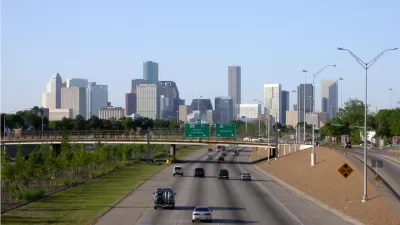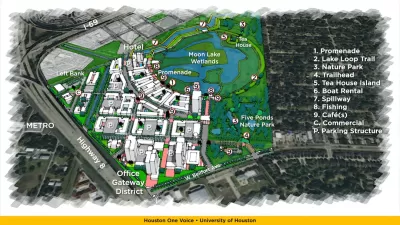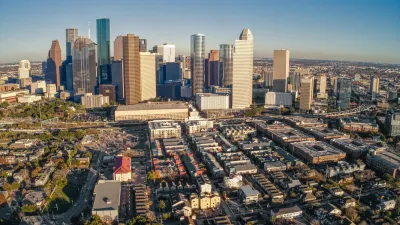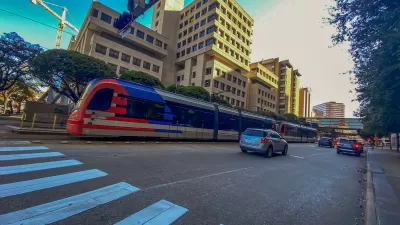After decades of fighting landfills and pollution in their community, residents of Sunnyside are working to build a more sustainable future.

Houston's Sunnyside neighborhood, a historically Black community in the southeast of the city, is no stranger to community organizing and self-reliance. Sunnyside has long borne the brunt of Houston's unchecked sprawl as the site of landfills, concrete plants, and other industrial uses that pollute the environment and harm quality of life for residents. For decades, local activists have fought to shed light on environmental injustices, prevent harmful industrial uses, and restore the community through grassroots projects and mutual aid. In a profile by Leah Binkovitz, Efrem Jernigan, a Sunnyside native and president of the South Union Community Development Corporation, outlines the work happening there and his dreams for the neighborhood he grew up in.
Jernigan and fellow Sunnysider Roy Guillory are just two of the residents actively working to bring sustainable economic development to the area. The two have been purchasing vacant lots with plans to turn them into community gardens, housing for veterans, and other community-oriented projects. At his childhood home, now equipped with rooftop solar panels and an aquaponic garden, Jernigan hosts dozens of children at an outdoor classroom where they can explore STEM through nature and technology. As president of Sunnyside Energy LLC, Jernigan is eager to put a solar farm on the site of a former landfill, transforming the use of the lot from a dumping ground to a healthy, clean source of energy.
With a long history of "sporadic interest and promises" from outside organizations that often go unfulfilled and a dearth of resources from the city of Houston, people in Sunnyside are wary of redevelopment plans. Even as a local, Jernigan knows he has to prove himself in a community wary of his intentions to "create a new narrative" for a historically overburdened area.
FULL STORY: In Houston's Sunnyside, overburdened from decades of discrimination, you learn to provide for yourself

Manufactured Crisis: Losing the Nation’s Largest Source of Unsubsidized Affordable Housing
Manufactured housing communities have long been an affordable housing option for millions of people living in the U.S., but that affordability is disappearing rapidly. How did we get here?

Americans May Be Stuck — But Why?
Americans are moving a lot less than they once did, and that is a problem. While Yoni Applebaum, in his highly-publicized article Stuck, gets the reasons badly wrong, it's still important to ask: why are we moving so much less than before?

Using Old Oil and Gas Wells for Green Energy Storage
Penn State researchers have found that repurposing abandoned oil and gas wells for geothermal-assisted compressed-air energy storage can boost efficiency, reduce environmental risks, and support clean energy and job transitions.

Minneapolis Bans Rent-Setting Software
Four cities have enacted restrictions on algorithmic software that can inflate rent costs.

Oakland to Add 244 New EV Chargers
Oakland plans to launch its new charging network at eight locations by the end of 2025.

Jane Goodall Inspires with Message of Hope, Resilience, and Environmental Action
Speaking in Pasadena, Jane Goodall offered a hopeful and inspirational message, urging global compassion, environmental responsibility, and the power of individual action to shape a better future.
Urban Design for Planners 1: Software Tools
This six-course series explores essential urban design concepts using open source software and equips planners with the tools they need to participate fully in the urban design process.
Planning for Universal Design
Learn the tools for implementing Universal Design in planning regulations.
Heyer Gruel & Associates PA
City of Moreno Valley
Institute for Housing and Urban Development Studies (IHS)
City of Grandview
Harvard GSD Executive Education
Salt Lake City
NYU Wagner Graduate School of Public Service
City of Cambridge, Maryland





























